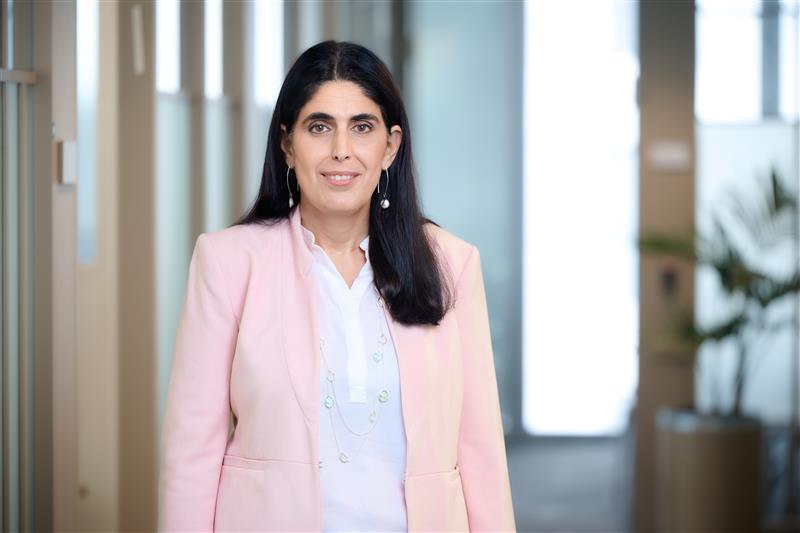Ronit Maor, Chief Financial Officer, Earnix

When I reflect on my career journey, I realise it has been shaped less by meticulous planning and more by the willingness to recognise opportunities, even when they arrived uninvited, and the courage to embrace them.
As someone who never set out to be a chief financial officer, I have learned that success often comes from venturing into the unknown and trusting both your instincts and your ability to learn.
Grasping an opportunity in finance with two hands
I began my career with a degree in industrial engineering, a broad discipline that gave me a strong analytical foundation without locking me into a single path. At the time, I had no clear vision of what I wanted to do. Then, almost by chance, a CEO of a small technology company spotted my profile, appreciated my background in industrial engineering, and invited me to join his team.
The role was in finance, an area I had never studied in depth and knew little about. My instinct was to hesitate; I felt unqualified, uncertain, and frankly intimidated. Yet after much consideration, I decided to step into the role, leading the finance team of a Nasdaq-listed company with just $10 million in revenue. Within a year, I became CFO. Looking back, it’s an opportunity that would never arise under today’s stricter governance standards, but in the 1990s it was possible. More importantly, it was transformative.
The power of trust and mentorship – That first CEO’s trust in me made all the difference. I was just 26, inexperienced, and unsure, but he not only gave me responsibility, he also invested time in teaching me. I accompanied him to meetings, listened intently, analysed what I observed, and absorbed lessons far beyond what textbooks could offer.
At the same time, I reached out widely to others, auditors, bankers, lawyers, fellow CFOs, anyone willing to share their perspective. These conversations were not always aligned, sometimes even contradictory, but they forced me to sharpen my judgment. I learned to filter advice, take what resonated, and apply it to my circumstances. That process built not just my technical expertise but also my confidence in my own ability to learn and adapt.
From finance to business and back again – Over the years, I discovered that finance done well is not just about bookkeeping or compliance, it is about making impact. A good CFO must understand the business, the market, and the strategy. That belief led me to step away from pure finance for several years into corporate development, where I was responsible for mergers, acquisitions, and international expansion. Those years broadened my worldview, taught me how businesses grow and integrate, and exposed me to cultural nuances from working across Asia.
When I returned fully to finance, I brought with me a richer, more holistic understanding of business. Today at Earnix, I draw on all of it, finance, corporate development, and technology, to help drive growth and innovation.
Mentorship as a responsibility
For the first 15 years of my career, I did not feel disadvantaged as a woman. In part, that was because I was fortunate: my early mentors gave me strong backing, and I may have been naive to challenges around me. But as I grew stronger in my career, I noticed more clearly the structural barriers women face, particularly in leadership roles.
That realisation made me intentional about mentoring. While I have mentored both men and women, I see the importance of creating specific support for women navigating finance and technology careers. Mentorship is not about changing someone’s life overnight; it is about listening deeply, understanding their strengths, and sometimes offering a piece of advice that shifts their perspective. I learn as much from these conversations as I give, but I know they matter. A single piece of encouragement or insight at the right moment can open a new path.
Authenticity as a leadership superpower
One of the recurring questions women ask is: how do you succeed in a male-dominated field without losing yourself? Should you emulate the louder, more forceful voices in the room? My answer is always rooted in my own journey: success came not from mimicking others but from leaning into professionalism, authenticity, and results.
Consistency in delivering outcomes-built trust. Speaking plainly and honestly, even when my views were unpopular, made people comfortable working with me because they knew where I stood. Over time, I learned that authenticity is not a weakness, it is a leadership superpower.
My advice to women building their careers is this: your strengths are not side notes. They are central to who you are as a leader. Don’t try to become “one of the guys.” Instead, double down on your expertise, your perspective, and your values. That is what will set you apart and give you the influence you seek.
Embracing the unknown – If there is one theme that runs through my career, it is that every leap into the unknown became a launchpad for growth. I never planned to be a CFO. I never planned to lead corporate development or to build a career at the intersection of finance and technology. But each time an opportunity appeared, I weighed it carefully, trusted myself, and stepped forward.
That mindset, openness to opportunity, willingness to learn, and courage to stay authentic, has shaped not only my professional path but also the way I mentor others. And it is the message I hope to pass on: success is not about becoming someone else. It is about becoming more of who you already are.

